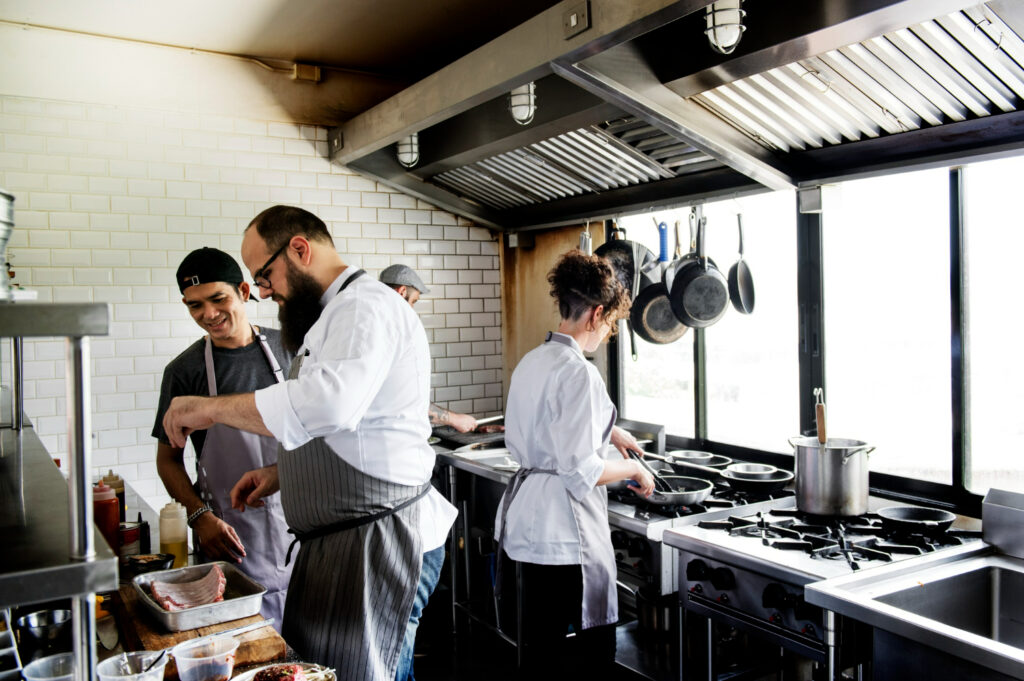Unlocking the Secrets of a Successful Catering Kitchen

It’s important to not underestimate the challenge of running a business. On average, nearly 20% of new businesses don’t even make it to their second year.
However, if you have decided to start your own business, you could at least tip those odds of survival more in your favour by choosing a line of work you love — and how many of us don’t love food? For this reason, setting up a catering kitchen can be a particularly enticing prospect.
You would, though, have to juggle a lot of plates (no, not literally — you obviously want to save them for the dinner table!) as a caterer — whether you prepare food for private events or corporate functions. Here are several steps for you to take on your way to achieving culinary excellence.
Start small
If you are considering going into catering in the first place, it’s probably because you have a lot of fun putting together gastronomic delights in your home’s kitchen — and your catering business could start there, too. You could even use ingredients that are already in your kitchen cupboards.
As for exactly what type of catering you ought to start offering first, it could help if you consider your personal connections. For example, if you know quite a few people who are set to get married soon, you could have plenty of opportunities to learn the ropes as a wedding caterer.
Further down the line, as your business takes on more and more orders, you might need to move into a professional kitchen. A catering kitchen for rent can give you cost-effective access to better amenities, such as larger ovens, while helping you to keep on top of the hygiene side of things.
Find a USP (unique selling point)
Of course, there are many different places where you could potentially provide catering. When someone is celebrating a special milestone, such as a birthday, anniversary or wedding, the quality of the food can be a big part of the experience.
You could also target business events along the lines of product launches and award ceremonies. Still, no matter how far you endeavour to extend your catering remit, you should also seek to give your business a distinctive ‘hook’; something that can help it to carve out a niche in the market.
Perhaps you could specialise in offering vegan-only food, or pledge to source all your ingredients locally? Whatever slant you go for, it will ideally be one that few if any catering companies in the area are already chasing, but which enables you to tap into pent-up demand.
Keep on eye on your corporate finances
How should you price your business’s catering services? It will be a tricky balance to price highly enough to cover your overheads, but also low enough to attract customers. Here, it would be wise for you to look at what competing caterers are charging for services similar to yours.
In any case, you should also seek clever ways to streamline your financial outgoings. For example, by accurately forecasting what ingredients you will need and when, you can reduce food wastage.
In fact, preventing many forms of waste would bode well for both the financial health and green credentials of your company. As the world-renowned naturalist David Attenborough has urged: “Don’t waste electricity; don’t waste paper; don’t waste food.”
Engage heavily in marketing
You can help to spread the word about your catering business through various marketing channels — including a dedicated business website, as well as a string of social media profiles. In all of these online places, you can post high-definition photographs of food items from your menu.
Not all of your catering kitchen business’s marketing activities have to take place online, however. You could look into running print ads, distributing leaflets and flyers, and sponsoring events.
Continue to maintain and enhance your services
Perhaps the most powerful form of marketing is word of mouth. You therefore have a strong incentive to make sure you are keeping pace with — and if possible, surpassing — the competition across a wide range of measures, including:
- The quality and variety of the cuisine
- Value for money
- Punctuality
- Your handling of customer queries or complaints
Nonetheless, in your drive to acquire new customers, you should be careful not to overlook those you have already served. You could strive to stay in touch with them and offer them special money-off deals.
A catering kitchen can be a great place for you to experiment with different ingredients in an attempt to find the ‘next big thing’ on the dining scene — and hopefully build a reputation for innovation.





